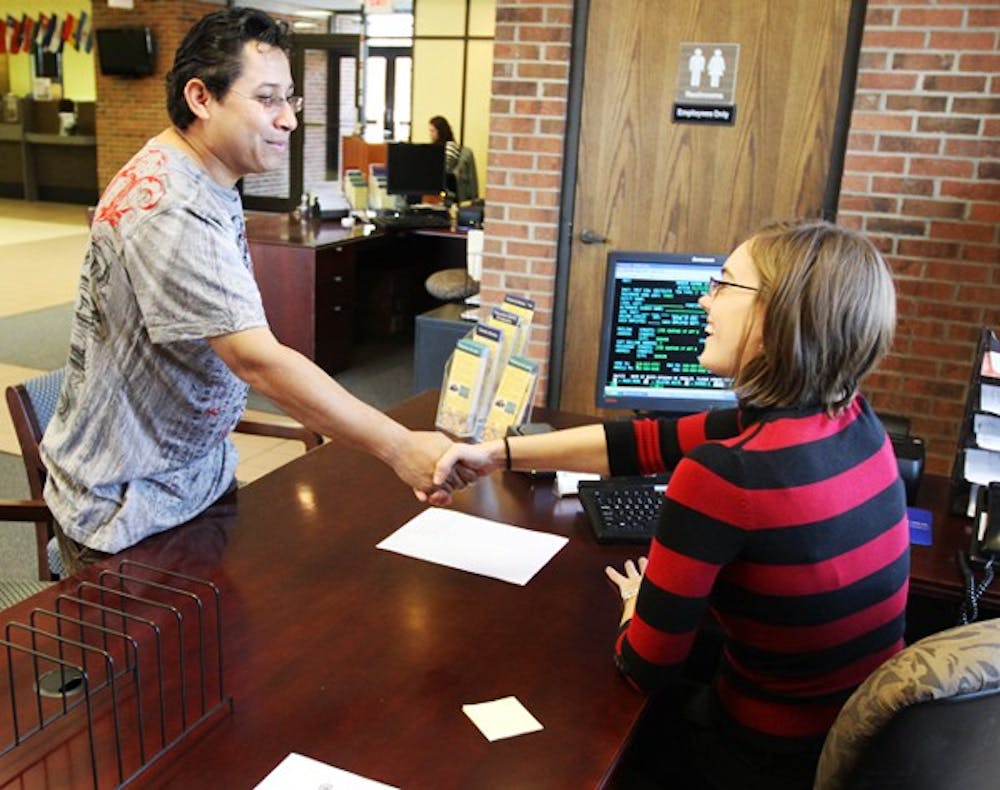Tania Herrera lives from paycheck to paycheck.
She came to the U.S. from Mexico five years ago. She has a steady job, and her English is spoken almost without an accent.
Yet Herrera, who sells cell phones and mobile plans at Don Jose Tienda Mexicana in Carrboro, is uncomfortable using a bank.
She has no credit, no personal checks and no savings.
This hand-to-mouth existence is what the Durham-based Latino Community Credit Union will try to improve once a new branch is opened in Carrboro.
It hopes to make its mark by providing bilingual service, lower interest rates and fees and financial workshops for immigrants who traditionally have not used banks either in the U.S. or in their home countries.
Founded in Durham in 2000, the credit union serves about 50,000 members statewide in eight branches. It plans to open in Carrboro by mid-2010.
Several members of the Durham branch already commute there from Carrboro, said Erika Bell, the credit union’s vice president of strategy and services.
According to a 2008 U.S. Census Bureau report, 6.3 percent of Orange County’s population is of Latino origin. Carrboro was listed with the county’s highest Latino population at 12.3 percent.
“We know that there are lots more people in that area that do need those services,” Bell said.
It is not part of the culture to use banks in many Latin American countries, said Pilar Rocha-Goldberg, director of El Centro Hispano, an advocacy group in Durham that partners with the credit union.
“In our countries we don’t have good experiences with our banks,” Rocha-Goldberg, who is from Colombia, said. “People keep their money in their houses. When they come here, they continue to do that.
“They don’t really have the culture of the account or the credit.”
She said the credit union is especially useful because it teaches members how to properly manage accounts and credit.
For people like Herrera who don’t have large sums to put away, the credit union offers savings accounts with a minimum balance of $10 and no opening fee and a free checking account without a minimum balance.
That’s compared with Bank of America’s $25 opening fee.
The credit union charges $3 to transfer money to Mexico, while Western Union charges up to $25.
The commercial banks also might ask for residency status on a case-by-case basis, while the credit union only asks for an individual tax identification number.
The credit union doesn’t offer many investment services, however.
Although commercial banks have moved to cater to the state’s growing Latino population, the recession led many Latinos to return home, shrinking their banking influence, said Paul Stock, executive vice president of the N.C. Banker’s Association.
Still, Latino-oriented banks like Nuestro Banco in Raleigh exist, and other banks are trying to attract an immigrant market share.
“Banking, like most retail businesses, has clearly identified the priority of serving the immigrant population, and particularly because of its size the Hispanic population,” Stock said, adding that some N.C. banks have bilingual tellers.
While Herrera speaks some English, she said she has trouble with the vocabulary and waits in a long line with everyone else for most banks’ one bilingual teller.
“I need something smaller where there’s more communication between the bank and its customers,” Herrera said.
If she had an account at the credit union, she said, she would be more likely to save her money.
Contact the City Editor at citydesk@unc.edu.
Latinos to get help banking
Durham credit union will open branch in Carrboro

The bank offers bilingual services.


